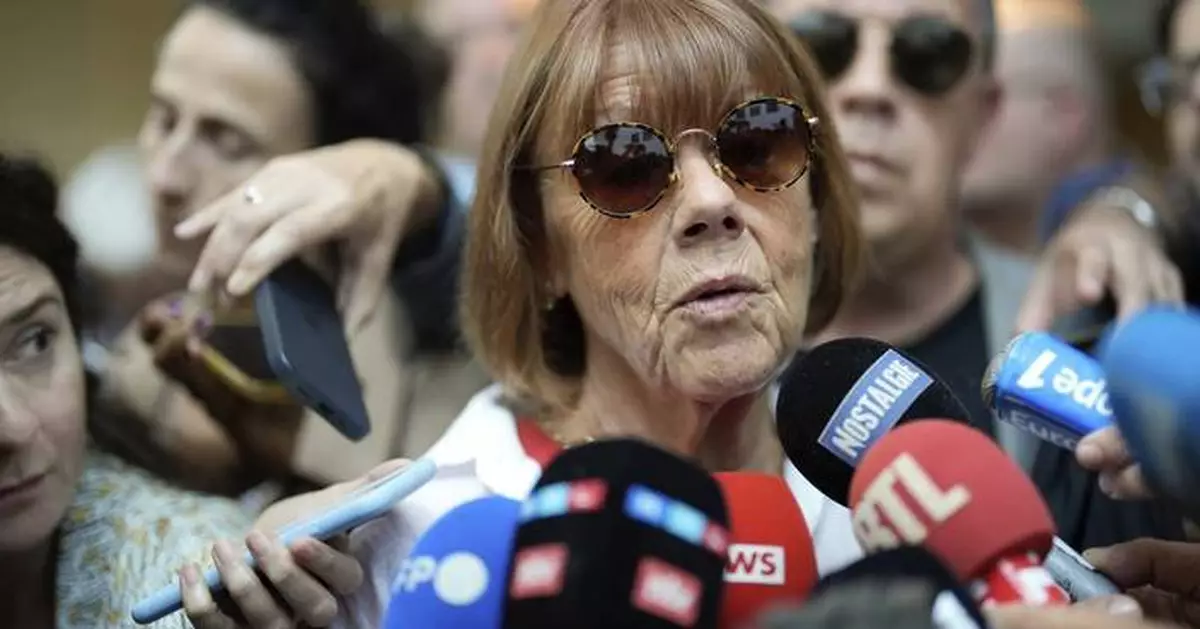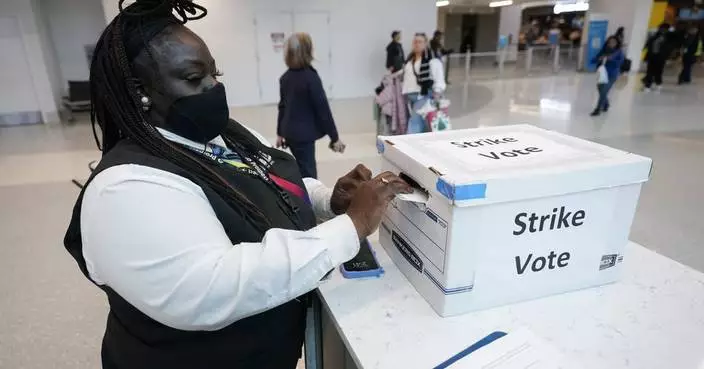AVIGNON, France (AP) — A mammoth rape trial in France moved into a new phase Monday with prosecutors beginning to lay out the verdicts and punishments they want for dozens of men accused of raping Gisèle Pelicot while she was drugged and rendered unconscious by her husband.
After hearings stretching over nearly three months, the trial of 51 defendants in the southern city of Avignon is beginning to wrap up. Pelicot’s courage during the harrowing proceedings has helped transform her into an icon, even beyond France, for campaigners fighting against sexual violence.
The public prosecutors started Monday by focusing on Dominique Pelicot, the man that 71-year-old Gisèle Pelicot was married to for nearly 50 years, believing he was a loving, caring husband.
But he has acknowledged that for years, he mixed sedatives into her food and drink, so he could rape her and also invite dozens of strangers that he recruited online to rape her, too.
Prosecutor Laure Chabaud asked the panel of judges for the maximum possible penalty for aggravated rape — 20 years — against Gisèle Pelicot’s now ex-husband. Dominique Pelicot, who turns 72 this week, stared down at the floor, one hand on the handle of his cane, as the prosecutor spoke.
“Twenty years between the four walls of a prison,” she said. “It’s both a lot and not enough.”
The court is expected to deliver its verdicts before Dec. 20.
Gisèle Pelicot has waived her right to not to be publicly identified and pushed for graphic images that her husband filmed of the rapes to be presented in the courtroom, showing that she was unconscious and inert, audibly snoring.
“This woman was you, Madame Gisèle Pelicot, an ordinary woman," said prosecutor Jean-François Mayet, turning to her, as he praised her courage Monday and her desire to make shame change sides, so it falls on rapists and not their victims.
He noted that Monday also marked the international day for the elimination of violence against women and said that France faces “a long path for our society to change its view of rape culture.”
Gisèle Pelicot sat quietly, sometimes staring up the ceiling, as the prosecutors detailed how Dominique Pelicot amassed and carefully catalogued a library of 20,000 photos and videos of the abuse that stretched over nearly a decade. The evidence that he stored on hard drives, memory sticks and phones led investigators to dozens of the men he recruited, although about 20 others haven't been identified.
All but one of the defendants are on trial for aggravated rape.
“When did they ask the question of Madame Pelicot's consent? Not before. Not during," Mayet said.
Pelicot has previously tearfully acknowledged in court that he’s guilty of the allegations against him. He said all of his co-defendants understood exactly what they were doing when he invited them to his home in Provence between 2011 and 2020 to have sex with his unconscious and unwitting wife, who divorced him after learning what he had done to her. He had no difficulty finding dozens of men to take part.
In previous weeks of testimony, many defendants told the court that they couldn’t have imagined that Dominique Pelicot was drugging his wife, and that they were told she was a willing participant acting out a kinky fantasy.
Dominique Pelicot’s lawyer, Béatrice Zavarro, said the prosecutors' request for the maximum possible penalty against him was justified “in view of the gravity of the facts and the seriousness of the acts of which he is accused.”
“There’s no surprise in asking for 20 years, and that’s what I personally expected. But it’s still a shocking and heavy sentence for a man who’ll be 72 in a few days,” she said.
Associated Press video journalist Marine Lesprit contributed to this report.
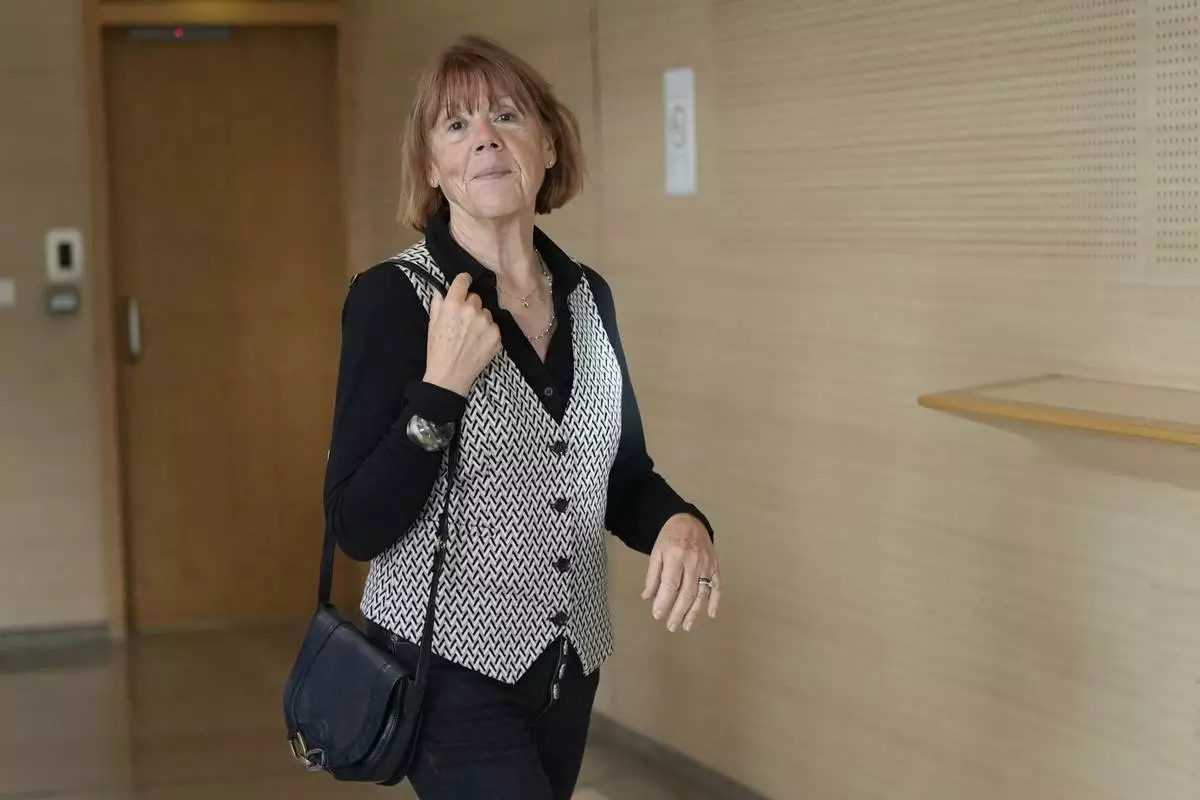
FILE - Gisele Pelicot, who was allegedly drugged by her now former husband so that he and others could assault her, arrives at the court house, in Avignon, southern France, Wednesday, Oct. 16, 2024. (AP Photo/Lewis Joly, File)
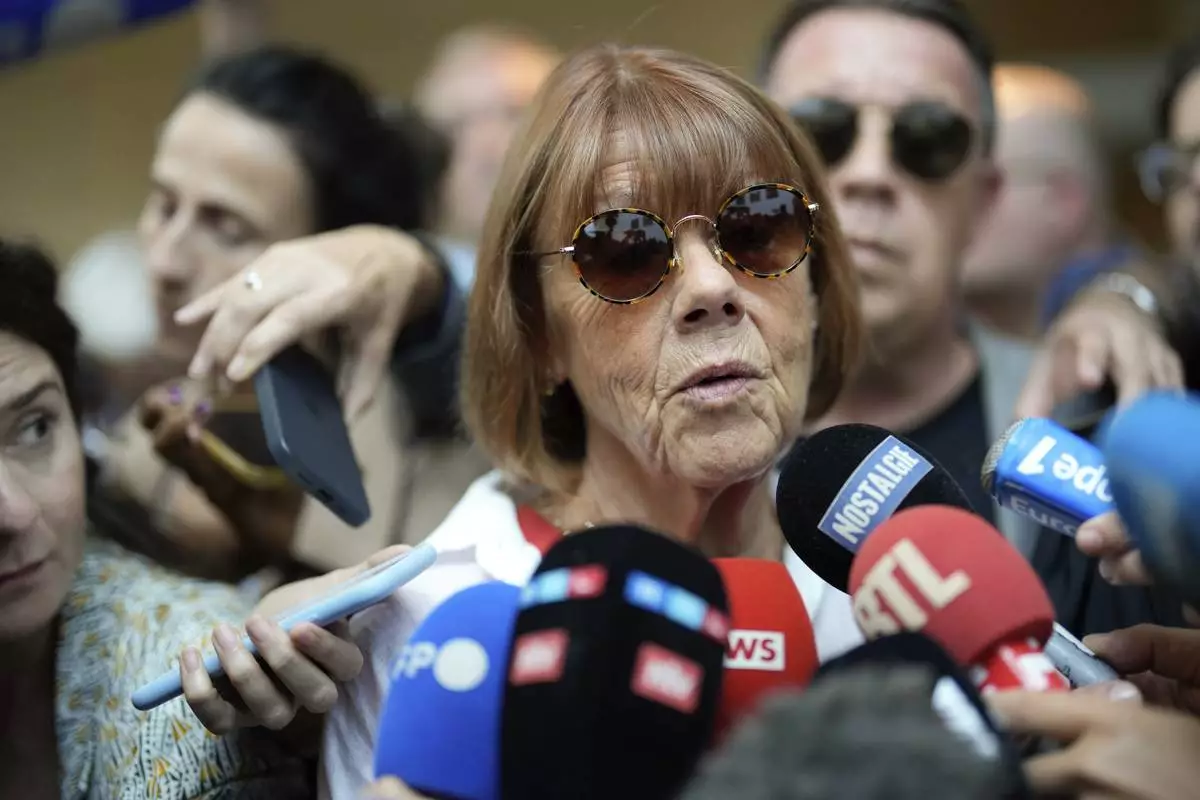
FILE - Gisele Pelicot speaks to media as she leaves the Avignon court house, southern France, Thursday, Sept. 5, 2024. (AP Photo/Lewis Joly, File)
LOS ANGELES (AP) — A judge will decide Monday whether new evidence warrants a re-examination of the convictions of Erik and Lyle Menendez in the shotgun murders of their parents in their Beverly Hills home more than 30 years ago.
The brothers were found guilty of murdering Jose and Kitty Menendez in 1989 and sentenced to life in prison without parole. While their defense attorneys argued at trial that they had been sexually abused by their father, prosecutors denied that and accused them of killing their parents for money. In the years that followed, they repeatedly appealed their convictions without success.
Now, at 53 and 56, Erik and Lyle Menendez are making a new bid for freedom. Their lawyers filed a habeas corpus petition — a request for a court to examine whether someone is being lawfully detained — in May 2023, asking a judge to consider new evidence of their father's sexual abuse. “Newly discovered evidence directly supports the defense presented at trial,” the petition said.
The recent releases of the Netflix drama “ Monsters: Lyle and Erik Menendez Story ” and the documentary “The Menendez Brothers" in 2024 brought renewed public attention to their plight. Members of the public will be given the opportunity to win a seat in the courtroom to catch a glimpse of the brothers, who will be appearing virtually.
Prosecutors recommended resentencing for the brothers last month, saying they have worked on redemption and rehabilitation and demonstrated good behavior inside prison.
Los Angeles District Attorney George Gascón held a news conference less than two weeks before Election Day, asking for new sentences of 50 years to life. This could make them immediately eligible for parole because they were less than 26 years old when they killed their parents.
Superior Court Judge Michael Jesic is scheduled to consider the resentencing request on Dec. 11, but on Monday, he'll first address the abuse evidence raised in the habeas petition. Immediate freedom is one possible result; the judge also might weigh in on the merits of the evidence. And if the brothers don’t get relief in court, they can hope California’s governor will grant them clemency.
The new evidence includes a letter Erik Menendez wrote in 1988 to his uncle Andy Cano, describing the sexual abuse he had endured from his father. The brothers asked their lawyers about it after it was mentioned in a 2015 Barbara Walters television special. The lawyers hadn't known of the letter and realized it had not been introduced at their trials, making it effectively new evidence that they say corroborates allegations that Erik was sexually abused by his father.
More new evidence emerged when Roy Rossello, a former member of the Latin pop group Menudo, recently came forward saying he had been drugged and raped by Jose Menendez, the boys’ father, when he was a teen in the 1980s. Menudo was signed under RCA Records, where Jose Menendez was chief operating officer.
Rossello spoke about his abuse in the Peacock docuseries “Menendez + Menudo: Boys Betrayed," and provided a signed declaration to the brothers’ lawyers.
Had these two pieces of evidence been available during the brothers' trial, prosecutors would not have been able to argue that there was no corroboration of sexual abuse, or that their father Jose Menendez was not the “kind of man that would” abuse children, the petition argues.
While clemency might be another pathway to freedom for the brothers, California Gov. Gavin Newsom said last week that he won't decide until incoming Los Angeles district attorney Nathan Hochman reviews the case. Hochman, a Republican-turned-Independent who unseated the progressive Gascón on Dec. 2, has said he wants to carefully look at the evidence before making any decisions.
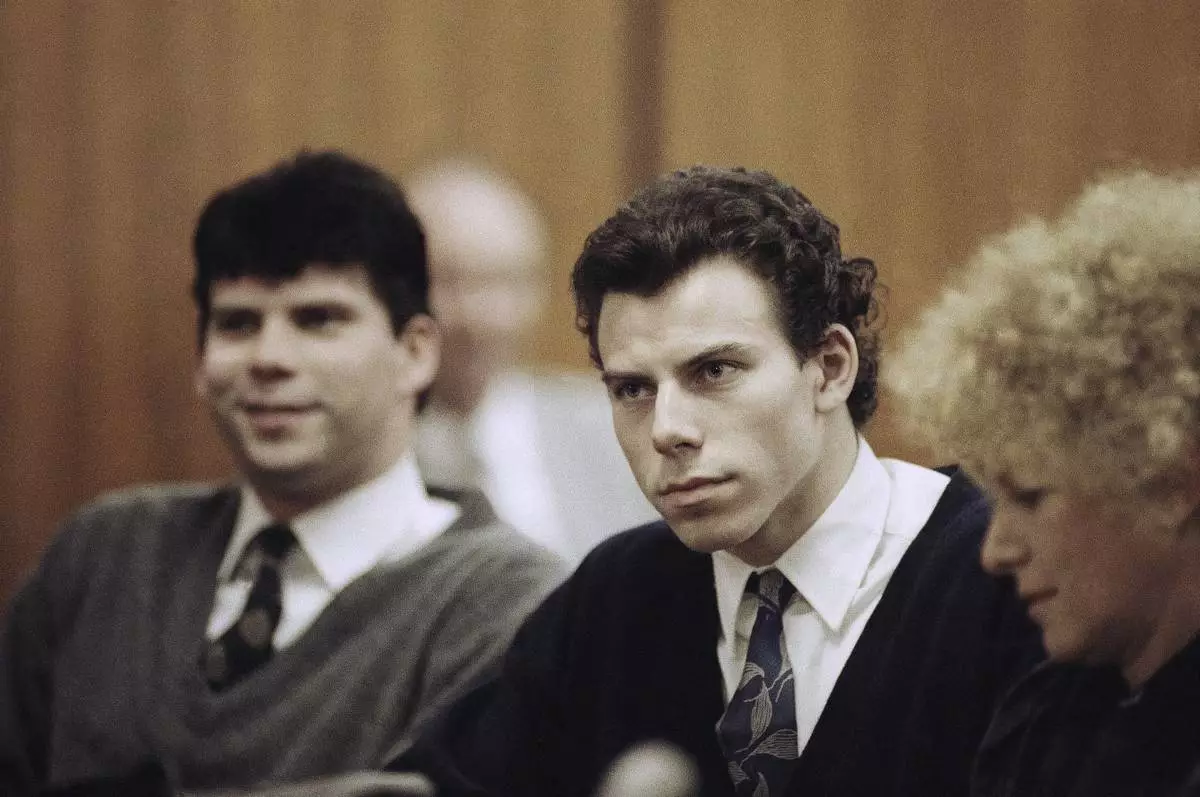
FILE - Lyle, left, and Erik Menendez sit with defense attorney Leslie Abramson, right, in the Municipal Court in the Beverly Hills area of Los Angeles, during a hearing, Nov. 26, 1990. (AP Photo/Nick Ut, File)
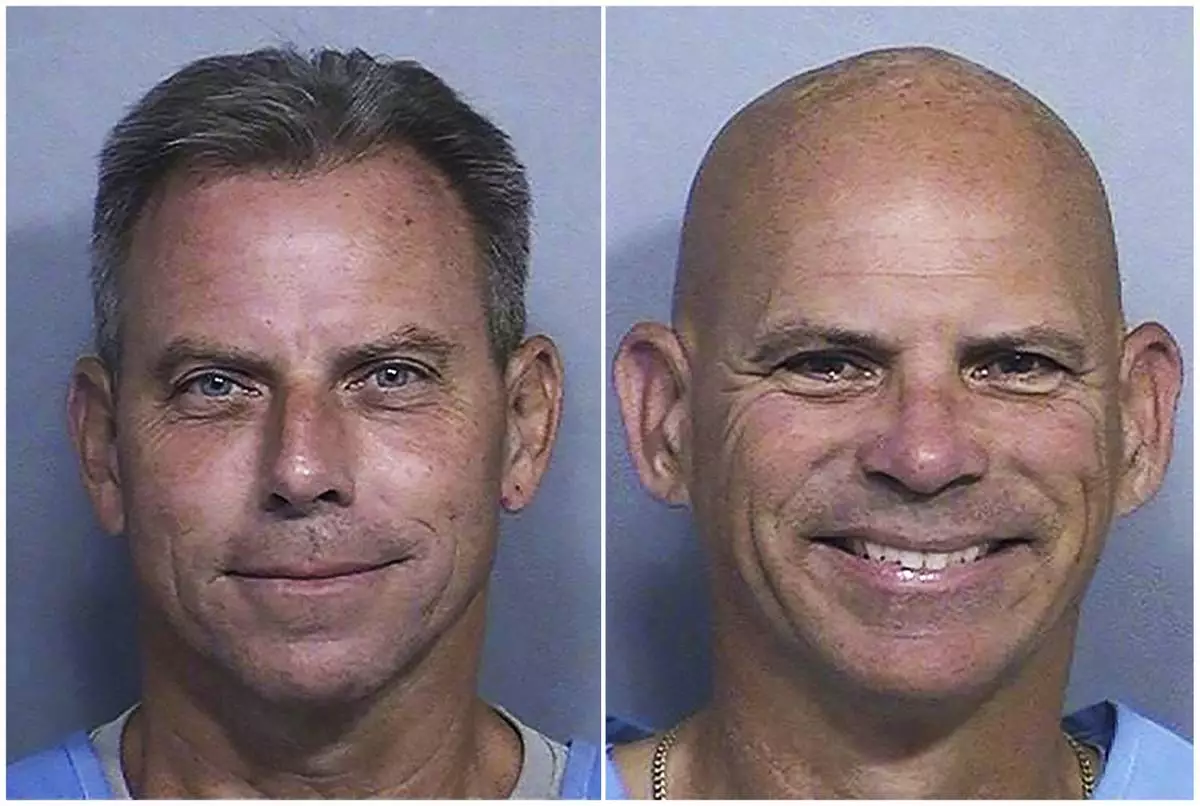
FILE - This combination of two booking photos provided by the California Department of Corrections shows Erik Menendez, left, and Lyle Menendez. (California Dept. of Corrections via AP, File)




